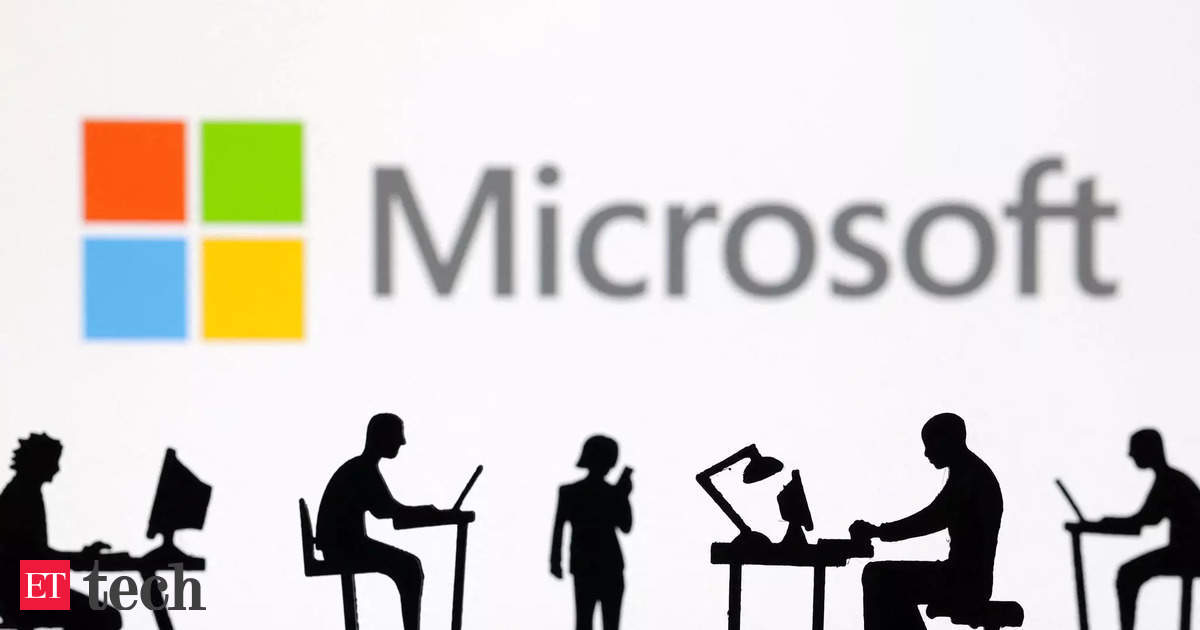“To be honest, what’s really missing today is a model raising her hand and saying ‘Hey, I’m not sure, I need help,'” Singh told AFP in an interview.
Since last year, Microsoft, Google and their competitors have been rapidly deploying generative AI applications like ChatGPT, which produce all kinds of content on demand and give users the illusion of omniscience.
But despite the progress, they still “hallucinate” or invent answers.
This is a major problem for the Co-pilot An executive must solve the problem: Singh’s corporate clients can’t afford to have their AI systems fail, even occasionally.
Salesforce CEO Marc Benioff said this week that he was seeing many of his customers growing increasingly frustrated with Microsoft’s Copilot detours.
Discover the stories that interest you
Singh insisted that “really smart people” were trying to find ways for a chatbot to recognize “when it doesn’t know the right answer and ask for help.”‘Real savings’
In Singh’s view, a more humble model would be no less useful. Even if the model has to rely on a human in 50 percent of cases, that still saves “tons of money.”
At one Microsoft customer, “every time a new request comes in, they spend $8 to have a customer service rep respond to it, so there’s real savings and it’s also a better experience for the customer because they get a quicker response.”
Singh joined Microsoft in January and this summer took over as head of the teams developing “Copilot,” Microsoft’s artificial intelligence assistant that specializes in sales, accounting and online services.
These applications have the mammoth task of generating revenue and justifying massive investments in generative AI.
At the height of the AI frenzy, startups driving the AI… technology were promising systems so advanced that they would “raise” humanityin the words of Sam Altman, director of OpenAI, funded primarily by Microsoft.
But for now, the new technology is mainly used to boost productivityand hopefully, profits.
According to Microsoft, Copilot can conduct research for salespeople, freeing up time for them to call customers. Lumen, a telecommunications company, “saves about $50 million a year” with this technology, Singh said.
Singh’s teams are working to integrate Copilot directly into the tech giant’s software and make it more autonomous.
“Let’s say I’m a sales rep and I have a call with a customer,” the executive suggested. Two weeks later, the model can “nudge the rep to follow up or, better yet, just automatically send the email on behalf of the rep because they’ve been approved to do so.”
‘First entry’
In other words, before finding a solution to global warming, AI is expected to free humanity from boring and repetitive tasks.
“We’re in the early stages,” Singh said. “A lot of this stuff is productivity-driven, but it obviously has huge benefits.”
Will all these productivity gains translate into… Job losses?
Leaders of large companies, such as K Krithivasan, head of Indian IT giant TCSThey have declared that generative AI will virtually wipe out call centers.
But Singh, like many Silicon Valley executives, is counting on technology to make humans more creative and even create new jobs.
He pointed to his experience at Yahoo in 2008, when a dozen editors chose articles for the home page.
“We came up with the idea of using AI to streamline this process, and some people asked, ‘Oh my God, what’s going to happen to the employees?'” Singh said.
The automated system made it possible to update content more quickly, thereby increasing the number of clicks on links but also the need for new articles.
“In the end,” the executive said, “we had to recruit more editors.”
Disclaimer:
The information contained in this post is for general information purposes only. We make no representations or warranties of any kind, express or implied, about the completeness, accuracy, reliability, suitability or availability with respect to the website or the information, products, services, or related graphics contained on the post for any purpose.
We respect the intellectual property rights of content creators. If you are the owner of any material featured on our website and have concerns about its use, please contact us. We are committed to addressing any copyright issues promptly and will remove any material within 2 days of receiving a request from the rightful owner.


